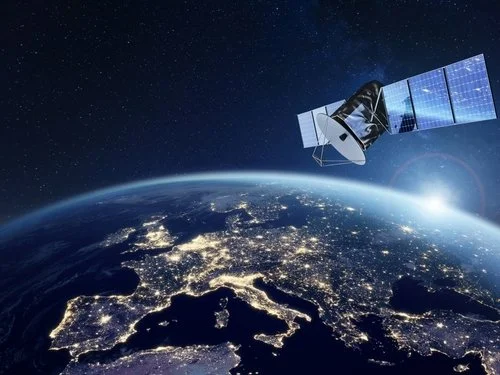New Frontiers
in Transatlantic Cooperation:
Transatlantic Periscope Deep Dive on Space
· By Zac Stoor ·
Space is a rapidly changing landscape that has become a focal point in discussions around national security, economic prosperity, sustainability, and cooperative governance. Following these debates is no easy task, as space policy and innovation evolve at lightning speeds. That is why, as part of our efforts to rethink transatlantic cooperation beyond Earth’s boundaries, the Bertelsmann Foundation has launched a Deep Dive about space on the Transatlantic Periscope, our multimedia news and analysis tool for the United States and over 20 European partners
Recent events on both sides of the Atlantic show a number of divergences in U.S. and European perspectives on space. In Washington, experts have greatly expanded their focus on space security issues, such missile defense and dual-use technology in orbit. The Trump Administration’s Golden Dome proposal has brought security to the forefront of conversation about America’s extraterrestrial considerations. U.S. news and analyses have also highlighted the ever-growing role of private actors in space, searching for avenues for public-private partnership.
In Europe, there has also been a shift. What was, for decades, an uncontroversial area of transatlantic cooperation is now another potential fault-line. The role of private actors, particularly SpaceX, in space has caused unease in Europe and pushed European policymakers and analysts to reflect on their dependency on U.S. technology, such as SpaceX’s Falcon 9 rocket. In April, the European Space Agency’s director general Josef Aschbacher urged further European investment in space in an effort to secure “autonomy” for itself. Echoing the rhetoric heard in other policy realms, this newfound desire for a Europe capable of standing on its own in the cosmos is a sign of seismic shifts in low Earth orbit and beyond.
Amidst these new tensions, there remain a number of areas for cooperation. Growing securitization of space has led to mutual concern over how best to approach Russia and China’s expanding capabilities for space warfare. The Artemis Accords, led by the U.S. and signed by the UK and 21 EU members, provide a framework for peaceful cooperation on the Moon. Despite disagreements on some security and commercial questions, there is enduring optimism in Europe and the U.S. that space is still a forum for transatlantic partnership to thrive.
